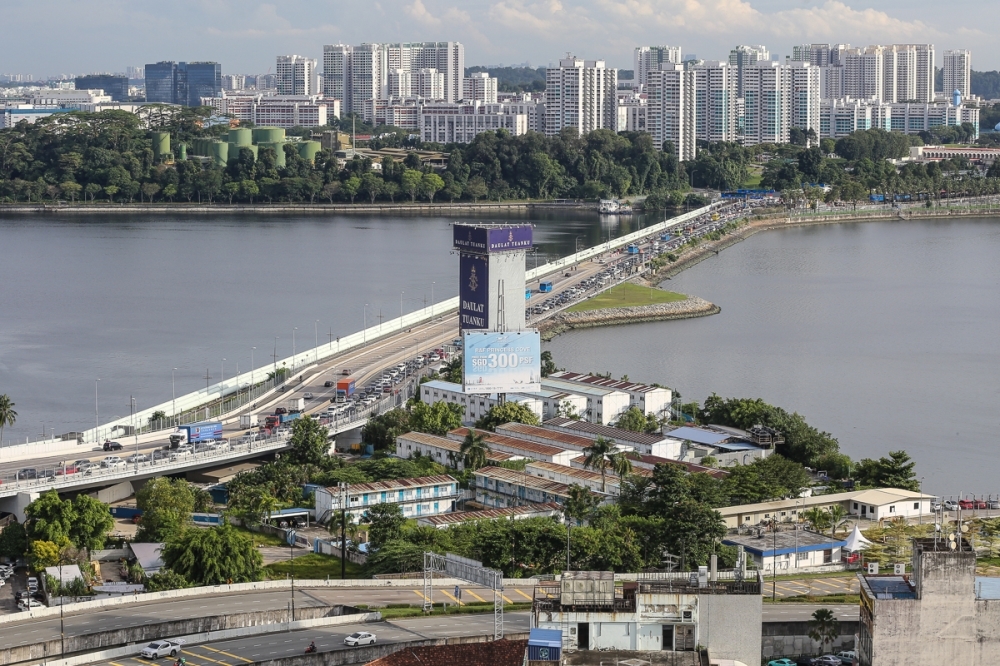KUALA LUMPUR, Jan 7 — The signing of the Johor-Singapore Special Economic Zone (JS-SEZ) agreement between Malaysia and Singapore today marks the beginning of a new era for Johor, with a focus on attracting international investments and driving regional growth.
JS-SEZ is poised to become a regional economic powerhouse, fostering investments, creating jobs, and encouraging sustainable development.
But what exactly is the JS-SEZ, and why has it generated such significant excitement? Malay Mail breaks it down for you.
What is the JS-SEZ and what is its plan?
It’s an ambitious initiative by the Johor government aimed at strengthening cross-border economic collaboration with Singapore.
Its primary goal is to attract both foreign and local investments, enhancing industrial capacity, infrastructure, and technological innovation while promoting sustainability.
It plans to do this by leveraging its proximity to one of the world’s most developed economies, Johor is positioning itself as a regional hub for manufacturing, logistics, technology, and tourism.
JS-SEZ covers strategic areas across Johor, with key developments concentrated near the Johor-Singapore border.
The zone encompasses several flagship areas, including Iskandar Malaysia, the Pengerang Integrated Petroleum Complex (PIPC), and critical logistics hubs.
These areas are designed to provide seamless connectivity through bridges, highways, and ports, ensuring the JS-SEZ’s accessibility to global markets.
Three new proposals for flagship zones have been suggested: Flagship ‘G’ in Forest City, Flagship ‘H’ at PIPC, and Flagship ‘I’ in Desaru, adding to the nine key flagship zones within JS-SEZ.
Flagship zones:
- A: JB City Centre (Business services, digital economy, health)
- B: Iskandar Puteri (Manufacturing, business services, digital economy, education, health, tourism)
- C: Tg. Pelepas-Tg Bin (Manufacturing, energy, logistics)
- D: Pasir Gudang (Manufacturing, energy, logistics)
- E: Senai-Skudai (Manufacturing, digital economy, education, logistics, tourism)
- F: Sedenak (Manufacturing, business services, digital economy, education, energy, food security, health, logistics, tourism)
- G: Forest City (Financial services)
- H: PIPC (Manufacturing, energy, logistics)
- I: Desaru (Education, food security, health, tourism)
These zones are strategically designed to foster innovation and cater to high-growth sectors such as aerospace, medical services, pharmaceuticals, and electronics.
The tailored zones ensure that infrastructure and investments remain competitive and attractive to businesses.
Incentives offered by JS-SEZ include:
- Tax benefits: Companies within the JS-SEZ may enjoy exemptions, including special corporate tax rates for high-growth activities and a special personal income tax rate announced by the Ministry of Finance.
- Infrastructure support: The Malaysian government will establish a fund for infrastructure development, while Singapore will provide funding to help Singaporean companies expand within JS-SEZ.
- Invest Malaysia Facilitation centre–Johor (IMFC-J): This centre acts as a one-stop centre in facilitating investments, including expediting approvals and streamlining processes.
- Strategic hub with excellent regional and global connectivity, where goods manufactured in JS-SEZ can be exported through either Singapore or Johor.
- Enhanced passes (Malaysia’s existing visa to be enhanced, for example the DE Rantau Nomad Pass).
- Pioneer Status (PS), which offers a five-year partial income tax exemption, and the Investment Tax Allowance, which provides a 60 per cent allowance on qualifying capital expenditures.
Furthermore, JS-SEZ is expected to drive the growth of the data centre supply chain, with opportunities for local suppliers to meet the increasing demand.
Digital Minister Gobind Singh Deo highlighted that JS-SEZ has the potential to stimulate growth for small and medium enterprises in the data centre supply chain, as Johor has already become one of Malaysia’s biggest data centre hubs.
JS-SEZ is designed to be a key industrialisation zone and is aimed at reaching the same level of success as other global industrial hubs like Suzhou Industrial Park and Shenzhen SEZ in China.
Similarly, it aspires to match the industrial innovation seen in California, United States, and the advanced manufacturing and engineering excellence of Stuttgart, Germany.
Like Hamburg’s industrial strength, JS-SEZ will benefit from logistics, trade, and a skilled labour force, positioning itself as a future global leader in industrialisation and technological development.
Timeline of JS-SEZ
- October 2023 — Agreement signed to establish the JS-SEZ.
- January 2024 — Memorandum of Understanding (MoU) signing.
- April 2024 — Workshops with working groups to outline priorities.
- July 2024 — Hosting the JS-SEZ Investment Forum, a platform to attract investors and share insights.
- Q3 and Q4 2024 — Drafting the definitive agreement with active stakeholder participation, including workshops in Malaysia and Singapore.
- January 2025 — Signing of the final agreement between Malaysia and Singapore.



















